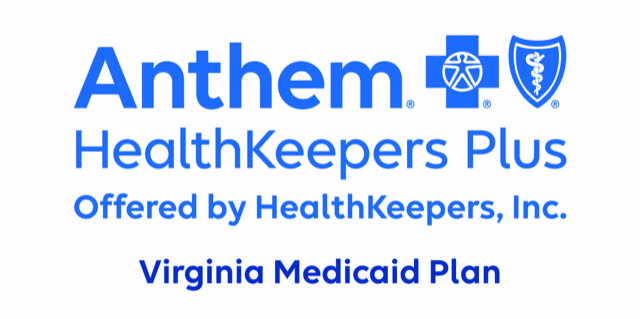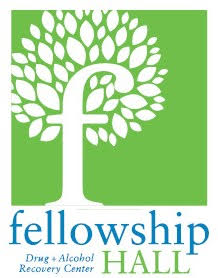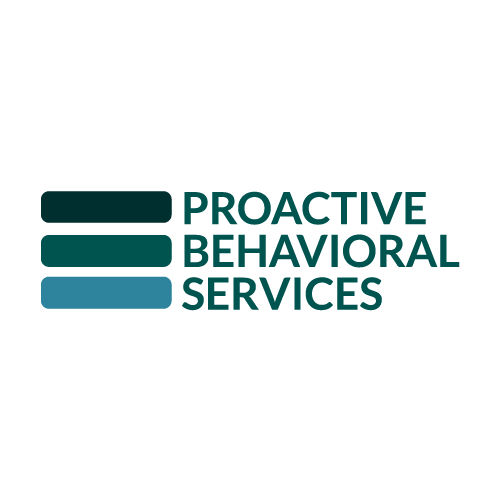Sunday | Monday | Tuesday | Wednesday
2024 Tuesday Schedule
8:15 to 11:45
PLENARY:
A. Omar Abubaker, DMD, Ph.D.
“Substance Use Disorders and Addiction: Myths and Facts and Why We Have to Decipher Them From Each Other”
Level: Intermediate
Limited: Open
Other: 0.5 Ethics included
Contact Hours: 3.0
Brief Description:
The presentation will review the historical misunderstanding of addiction in light of similar historical misunderstandings of other chronic diseases. The lecture will also discuss the barriers to complete medical and public acceptance of the new model of addiction as a disease. The presentation will then outline the ethical and societal obligations of removing the barrier and how all citizens can be part of the change in how we view the disease and treat people with the disease of addiction. Finally, the presentation will sketch the basis for hope in our plight in combating the disease of addiction.
Educational Objectives:
By the end of the presentation, the audience will be made familiar with:
- The history of medical misunderstanding (and Past Myths) of other chronic diseases.
- The barriers to better understanding of addiction by the medical establishment and society in general.
- The basis for a change in our understanding of addiction and the ethical implications on the future of medical education and society.
- The different roles we collectively have in pursuing medical and ethical parity of addiction with other chronic diseases.
- The basis for a hope for a future with a better world where addiction is universally accepted as a chronic brain disease.
Themes Addresses: Basics; Ethics
12:00 to 1:00
Lunch Break/Exhibits/
Ron Pritchard Visionary Leadership Award Luncheon
1:15 to 4:45
Jennifer Fariss, LPC, LSATP, ADS & Amy Pierce, Resident in Counseling, CSAC, ADS
“DBT and Trauma Useful Skills”
Level: Introductory
Limited: Open
Other: 0.5 Ethics included
Contact Hours: 3.0
Brief Description:
The presentation will cover a definition and brief history of DBT which includes an overview of the clients who will benefit from this therapeutic model. The definition and basics of each component including mindfulness, emotion regulation, interpersonal effectiveness, and distress tolerance. A variety of interactive activities will be taught during the presentation. As we face challenges in the field of addiction using concrete activities will empower clients and therapists. The ethical considerations of DBT will be addressed by reviewing the first three sections of the ACA Code of Ethics and the dilemma of holding the dialect.
Educational Objectives:
What is DBT?
- Definition
- History
Components of DBT
- Mindfulness
- Definition
- Application of Skill Activity
- Emotion Regulation
- Definition
- Application of Skill Activity
- Interpersonal Effectiveness Skills
- Definition
- Application of Skill Activity
- Distress Tolerance Skills
- Definition
- Application of Skill Activity
Ethical Considerations for DBT
- Overview of ACA Code of Ethics Section A, B, C and how it applies to DBT
- Looking at the parallel process of DBT and its quandaries.
Diary Cards and Other Resources
Resources
Themes Addresses: Skills Training; Ethics
Jennifer Walden, LPC, LSATP
“Intentional Supervision: Promoting Developmental Growth with Substance Abuse Counselors”
Level: Supervisory
Limited: 20 participants
Other: 0.5 Ethics included
Contact Hours: 3.0
Brief Description:
Many agencies face challenges in counselor (and supervisor) compassion fatigue and burnout. The first (didactic) portion of the workshop will explore research cited in SAMHSA’s Tip #52 (“Clinical Supervision and Professional Development of the Substance Abuse Counselor”) and draw from seminal counseling texts including Carl Rogers’ On Becoming a Person. The clinical supervisor will discover new ways to integrate developmental perspectives into training, supervision, and clinical leadership. Signs of clinician burnout and compassion fatigue will be identified, and methods of intervening will be explored. The second (experiential) portion of the workshop will include a live demonstration of a clinical supervision group that explores compassion fatigue.
Educational Objectives:
Clinical supervisors will explore their own supervisory styles and consider how they can implement developmental strategies in intentional supervision sessions or groups.
Attendees will also learn the signs of counselor and supervisor burnout and compassion fatigue and gain new skills for addressing this common concern in the substance abuse field.
Attendees will observe (or participate in) a live demonstration of a supervision group based on the topic of compassion fatigue.
Themes Addresses: Clinical Supervision; Compassion Fatigue; Ethics
Kimberley L. Berlin
“Spiritual Healing for Addiction: Helping Clients Rise in their Recovery”
Level: Intermediate
Limited: Open
Other: 0.5 Ethics included
Contact Hours: 3.0
Brief Description:
Neuroscientific research on the positive effects of spiritual practices on anxiety and depression is extensive. Spiritual practices as a path for healing addiction have received less attention. This workshop session examines the neuroscience of spirituality and its healing effect on the brain, body, and soul in the domain of addiction
Grounded in the Internal Family Systems (IFS) model of addiction processes, this presentation offers a new approach to the challenges we face as practitioners. Asking different questions of clients who face harder challenges can help them find solutions through Self-energy. From this perspective, guilt, shame, and stigma can be healed. (100 words).
Relapse rates for substance abuse treatment continue to remain in the 70 percentile despite decades of research, effort, and the use of various modalities. It is time to take a look at alternative evidence-based approaches that may hold the answer to long-term recovery.
Much has been written about spirituality and healing the brain. Little has been written about how spirituality can heal the brain from addiction. Understanding the connection between science and the human spirit sheds new light on potential treatment outcomes. Science is now proving what has been described in materials spanning millennia.
This presentation speaks to the importance of bringing Neurospirituality into the domain of alcohol and substance use disorder treatment based on decades of clinical research. Drawing from major figures in the field (van Der Kolk, Seigel, Miller, Mate), offering concrete evidence and tangible methodology, and supporting the assertion by Carl Jung that “spiritus contra spiritum” is the formula for healing this condition.
Educational Objectives:
- Understand how “spirituality” is defined and can be applied to non-religious persons in psychotherapeutic and addiction treatment.
- Discuss the differentiation between “religion” and “spiritual practices.”
- Include an examination of indigenous practices, cross-cultural identification, and inclusivity.
- Discussion of the ethical responsibilities when employed by government agencies.
- What about the “God” thing?
- Gain basic knowledge of Neurospirituality as an approach to therapeutic treatment.
- Discussion of what is meant by spiritual practices.
- Disseminate information on multiple examples of spiritual practices.
- Examination of how these affect areas of the brain.
- Discussion of how spiritual practices can enhance neuroplasticity or the ability of the brain to heal from the effects of addiction.
- Comprehensive presentation of spiritual techniques with audience participation.
- Topics include:
- Meditation, contemplation;
- Prayer, mantra, chant, and hymn;
- Body “recovery.”
- Topics include:
- Exercises include:
- Group participation in chant;
- Group participation in hymn;
- Writing your own prayers;
- Exploring somatic healing.
EXPECTATION AND OUTCOME:
It is the expectation that the participants will learn new and vital skills to use during challenging times both in the present and the future. These tools can be used to teach clients long-lasting techniques that will facilitate healing the brain and reduce recidivism.
Participants will be able to differentiate important nuances for clients who are wary of the idea that addiction treatment requires a religious orientation, such as in the 12-step model. Ethical considerations of working in a government-funded agency and bringing spiritual practices to clients to help them navigate a healing process in substance use disorder treatment will be thoroughly discussed.
Themes Addresses: Skills Training; Recovery; Ethics
Nancy L. Johnston, MS, LPC, LSATP, MAC, NCC
“From Codependency to Self-Recovery: A Treatment Guide for Clinicians”
Level: Intermediate
Limited: 30
Other: 0.5 Ethics included
Contact Hours: 3.0
Brief Description:
Codependency is a real psychological dynamic. Loss of self in others is a practical way to conceptualize codependency. So is over functioning for others/under functioning for self. Codependent behaviors/patterns run long and deep and merit compassionate, intentional clinical work which helps clients focus on self and respond to what they find within.
Educational Objectives:
- Learn 3 ways to clinically conceptualize codependency
- Learn 4 elements involved in Self-Recovery
- Take away 5 visual tools to help codependent clients better understand self and use to make changes on their own behalf
- Learn 3 ways to help codependent clients increase their internal connections
- Take away 7 clear treatment guidance statements
Session Abstract
Self-Recovery is Nancy Johnston’s evolving model for codependency recovery. With 35 years of focused work with codependency, her Self-Recovery model conceptualizes codependency as loss of self in someone else and as overfunctioning for others/underfunctioning for self. With these research informed understandings and her extensive clinical work, Nancy teaches 4 interlocking elements involved in Self-Recovery: Self-Understanding, Self-Awareness, Self-Competence, Self-Attunement. This model builds from her earlier work in Disentangle: When You’ve Lost Your Self in Someone Else (2nd Ed) (2020).
Nancy has had her feet in both mental health and addictions treatment her entire career. Trained in Counseling Psychology, Nancy identified the need to understand and treat addictions as well. Her interest in codependency grew from this multi-disciplinary work as well as her personal path. Over the past three years, PESI (Professional Educational Systems Institute) has become interested in her codependency treatment model. Nancy is now a speaker and author for PESI and through this work she has created detailed guidance for clinicians working with codependency. This session will offer an instructive, detailed overview of the clinical conceptualizations and treatment model she teaches.
Themes Addresses: Skills Training; Ethics.
Thomas F. Capshew, LCSW, Ph.D.
“Connecting: The Essence of Successful Substance Abuse Treatment”
Level: Intermediate
Limited: 35 participants
Other: 0.5 Ethics included
Contact Hours: 3.0
Brief Description:
The deeper an individual sinks into addiction the more that individual’s bandwidth focuses on the substance. Over time, the individual’s connections to: 1. Themselves; 2. to other humans; and 3. to something bigger than them weakens and becomes dormant. This workshop presents a framework for clinicians to assess the extent that their treatment assists clients in rebuilding their connection with themselves in three domains, body, mind and spirit, with other humans, and with their beliefs around their life’s path, passion and purpose. This interactive session will include specific tools for positive connecting.
Educational Objectives:
- Participants will understand the importance of connection for successful substance abuse treatment.
- Participants will identify three levels of connection for clients, internal, horizontal and vertical.
- Participants will develop or refine the skill to assess their clients’ depth and breadth of connection with each level of connection.
- Participants will deepen their spiritual competency to understand the diverse ways clients connect to something bigger than themselves.
Themes Addresses: Cultural Competency: Basics; Skills Training; Recovery Community; Ethics










